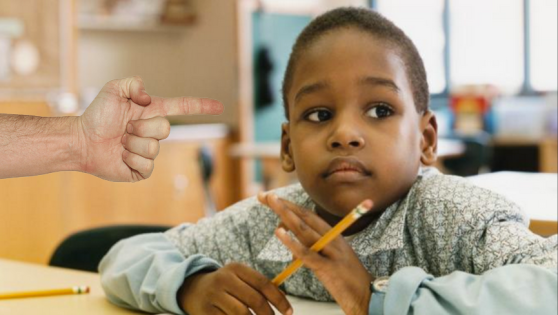
Let's say you're out in public and you see a crying child alone in the street.
What would you do?
Would you run up to her and help? Or would you just shrug, mutter some derisive comment about the brat and walk on?
Our public school policymakers want us to do the later. In fact, they have a whole pedagogical justification for ignoring the needs of children.
It's called "academic tenacity," a "growth mindset" or "grit."
And it goes something like this:
That child isn't learning? If she just worked harder, she would.
It's the political equivalent of "pull yourself up by your own bootstraps" applied to the classroom.
And it's super helpful for politicians reluctant to allocate tax dollars to actually help kids succeed.
The idea and the euphemisms used to describe it were coined by Carol Dweck as early as 1999. It was subsequently popularized by seventh-grade math teacher and psychologist Angela Duckworth.
In the early 2000s, Duckworth realized that IQ wasn't the only thing separating successful students from those who struggled. There was also the tendency to overcome adversity or not.
Hey, Angela. Darwin called. He wants his Theory of Natural Selection back.
You know Survival of the Fittest was never meant to be prescriptive. As human beings, we're supposed to be better than mere animals that typically leave the pack's sick and injured behind to get eaten by predators.
But whatever.
The term "grit," is defined as a "passion and perseverance for long-term goals," according to Frontiers in Psychology. And it's become one of the buzziest of buzzwords in academia.
So much so, that as you're reading this, standardized test manufacturers are working to develop an assessment to find it in students.
The agencies that administer the National Assessment of Education Progress (NAEP) and the Program for International Student Assessment (PISA) are close to including character assessments as a measure of student performance.
Oh goody!
They foresee a brave new world where multiple-choice tests will determine not just the entire scope of human knowledge but character as well!
But what no one wants to admit is that grit is… well… shit.
It's just an excuse for a society that refuses to help those most in need.
In our world, there are haves and have-nots. But if we stop there, we ignore how and why this situation came to be.
Who places kids into segregated schools? WE DO.
Who allocates funding based largely on parental income? US.
We set kids up to succeed or fail before they even enter the school system with an economy that rewards the already rich and punishes generational poverty.
Yet when anyone suggests offering help to even the playing field – to make things more fair - a plethora of policy wonks wag their fingers and say, "No way! They did it to themselves."
It's typical "blame the victim" pathology to say that some kids get all the love, time and resources they need while others can do without --- they just need more "grit" and a "growth mindset."
Life's tough. Get over it.
That's easy for YOU to say! Because it's the have's who make the rules, it's the people at the top who are telling the people at the bottom they're to blame for their own suffering.
So you forget all the ways society has helped you and yours. YOU deserve all the credit for your successes.
But for those people over there, let's forget all the ways society has refused to help and instead blame THEM for not overcoming the obstacles (we put) in their path.
Don't get me wrong. I'm not saying effort counts for nothing. But it's part of a complicated matrix of nature and nurture.
Our environments shape us, but we have some control over what we do with what we're given.
Yet as a society, we can't simply ignore our responsibilities toward others and throw it all on the individual.
Good teachers know how to get the best out of their students. We know that most kids – if given a safe, encouraging environment – can succeed.
The key often is to scaffold that success. Give them something to do that they can actually master. Then give them something slightly more challenging.
You teach them that they have the ability to succeed and success becomes a self-fulfilling prophecy – and not the opposite.
However, the teacher – and even the school, itself – can only do so much.
As a society, we need to change the environment in which these kids grow up.
We need to fully fund our public schools to meet the needs of all students. That means more funding, services and opportunities for the underserved than for those who already have the best of everything and don't need to rely as heavily on the school system for support.
We need wraparound services, counseling, tutoring, after school programs, community schools, jobs programs, continuing education for adults and other services to help heal the trauma of growing up poor in America.
But leaving it all to this magical thing called "grit" is just ignoring our responsibilities to our fellow human beings.
When you see someone suffering, you need to help them – not comfort yourself with excuses for ignoring them.
Like this post? I've written a book, "Gadfly on the Wall: A Public School Teacher Speaks Out on Racism and Reform," now available from Garn Press. Ten percent of the proceeds go to the Badass Teachers Association. Check it out!











